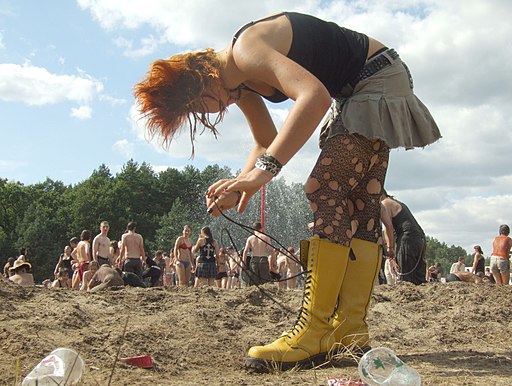To quote, and I only pick on this because it is an excellent exposition of the fears of the post-processual prehistorians:
The new focus on genetic identities of individual people in the past, and the interpretation of that data in terms of ethnic groups, comes at a time when archaeological theory is turning away from such bounded concepts. The emergence over the last decade of the 'material turn’ or the post-human, combined with slightly earlier ideas around embodiment, personhood and performativity, has produced a diverse set of approaches that share a concern to decentre the traditional human subject, at least if that subject is conceived as an individual of modern, Western type embedded in contemporary sorts of power and gender relations.
The impression that current theoretical perspectives are diametrically opposed to genetic studies predicated on the individual human body as a privileged site of historical insight is only strengthened by the way the new data is presented in terms of old-fashioned migrationist and determinist narratives. The geneticists also tend to talk in the language of natural science, with their hypotheses and models, a discourse which archaeologists largely discarded thirty years ago, in the post-processual reaction to the New Archaeology.

By Jakkolwiek [GFDL or CC BY-SA 4.0-3.0-2.5-2.0-1.0], from Wikimedia Commons
Some Definitions:
Processual archaeology (formerly the New Archaeology)
https://en.wikipedia.org/wiki/Processual_archaeology
Writing in 1987, the archaeologist Christopher Chippindale of Cambridge University spoke on the view of processualism at that time, putting it in the context of the 1960s, when he stated that:
The sharper students of the current generation reasonably regard the "New Archaeology" in its pristine form as a period piece, as strange an artefact of that remote era as the Paris évènements or Woodstock. They have some cause: the then-radical insistence that nothing valuable had been written in archaeology before 1960 matched the hippie belief that anyone over 30 was too ancient to be intelligent, and the optimism that anything could be recovered from the archaeological record if only you searched hard enough was the archaeological version of the hope that the Pentagon could be levitated if only enough people had sufficient faith.
Chippindale, Christopher. 1987. Review of "Processual Archaeology and the Radical Critique". Current Anthropology Volume 28, Number 4.
Post-processual archaeology, which is sometimes alternately referred to as the interpretative archaeologies
https://en.wikipedia.org/wiki/Post-processual_archaeology
The post-processualists' approach to archaeology is diametrically opposed to that of the processualists. The processualists, as positivists, believed that the scientific method should and could apply to archaeological investigation, therefore allowing archaeologists to present objective statements about past societies based upon the evidence. Post-processual archaeology, however, questioned this stance, and instead emphasized that archaeology was subjective rather than objective, and that what truth could be ascertained from the archaeological record was often relative to the viewpoint of the archaeologist responsible for unearthing and presenting the data
No comments:
Post a Comment
Comments welcome on fresh posts - you just need a Google account to do so.